Ever since I first dipped below the ocean’s surface in 2012, I found myself entranced by the vibrant, otherworldly landscapes hidden beneath the waves.
What started as a mere hobby soon blossomed into a profound connection with our planet’s marine ecosystems.
The serenity and beauty of the underwater world felt like a hidden paradise, offering a sanctuary from the chaos above.
Over the years, this passion has opened my eyes to the urgent need for marine conservation.
The delicate balance of these ecosystems is under threat, and with each dive, I felt a growing responsibility to protect the wonders I had come to love.
Efforts to safeguard our underwater world are constantly evolving, with each initiative proving more innovative than the last. Brunei, too, is keenly attuned to these advancements.
Recently, the Sultanate embraced Reef Balls, a revolutionary tool aimed at preserving our coral reefs.
Inspired by recent national celebrations such as Ocean Week, this article explores how Reef Balls could be the key to ensuring the longevity of our marine ecosystems.
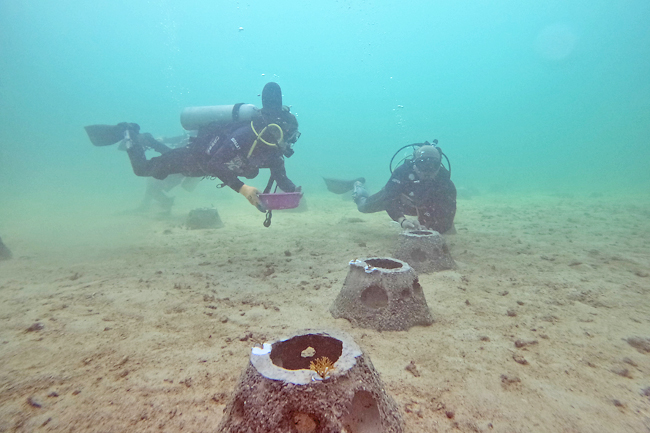
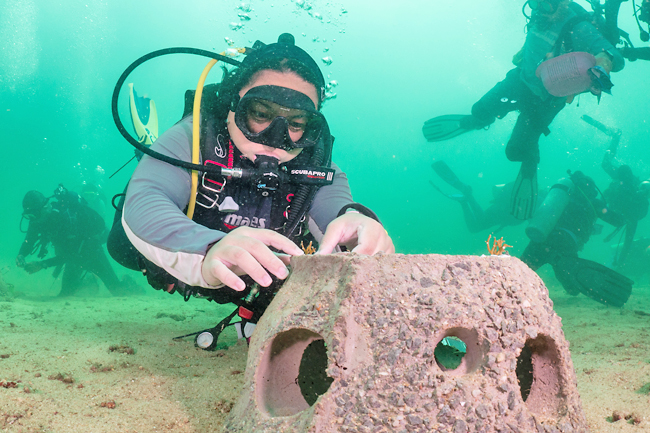
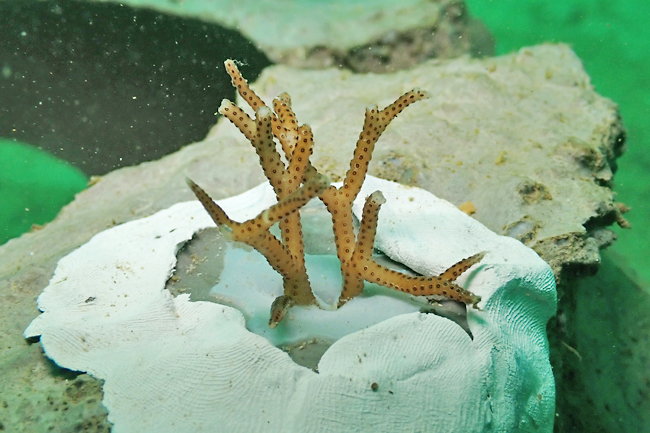
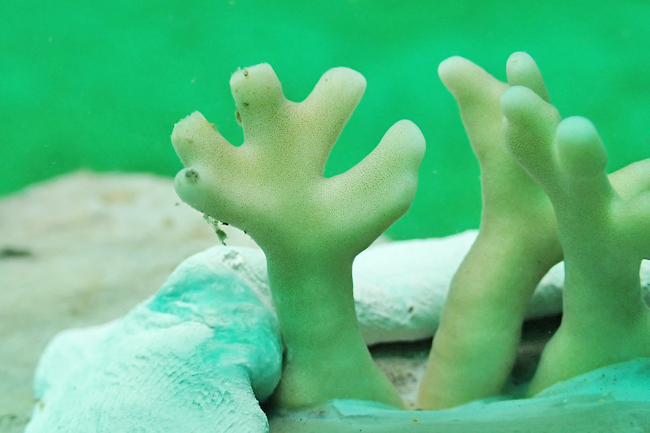
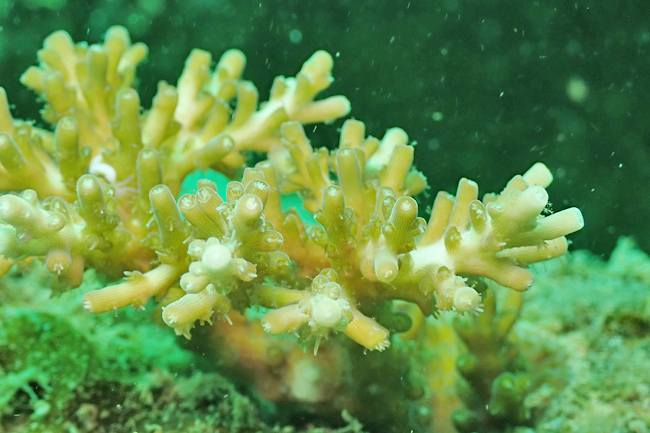
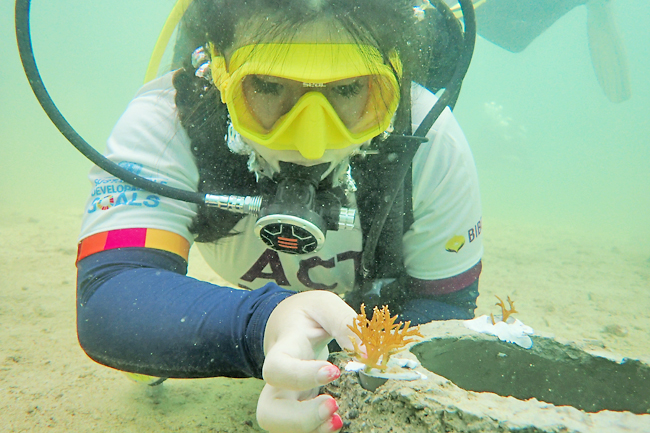
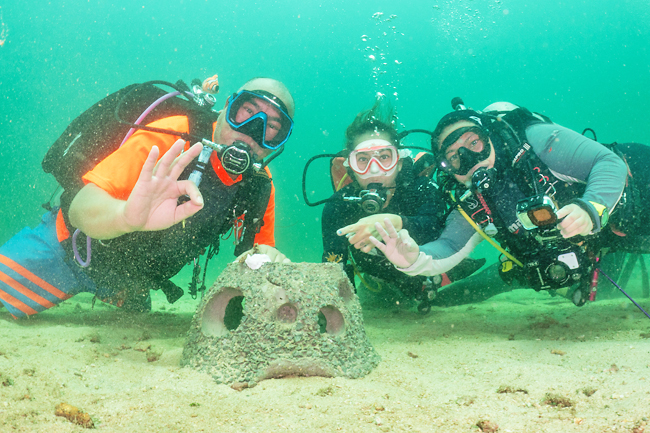
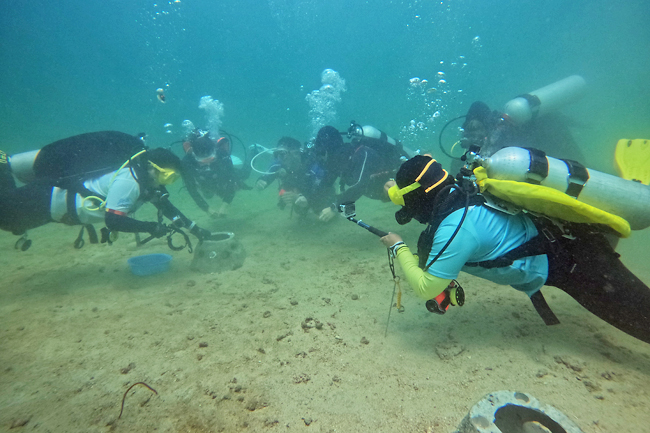
THE IMPORTANCE OF MARINE CONSERVATION
Marine conservation is vital not only for the health of our oceans but for the well-being of our entire planet.
Covering over 70 per cent of the Earth’s surface, oceans play a critical role in climate regulation, supporting biodiversity, and providing essential resources for human survival.
However, human activities can easily disrupt the delicate balance of marine ecosystems, causing far-reaching consequences.
In the Sultanate, marine conservation has garnered significant attention in recent years, bolstered by initiatives like Ocean Week. This annual event unites government agencies, dive centres, scientists, conservationists and the public to raise awareness about the importance of protecting our oceans.
This year’s Ocean Week was particularly impactful, featuring events that emphasised the urgent need for sustainable practices and innovative solutions to address the threats facing our marine environments.
During Ocean Week, I took part in several seminars and workshops that strengthened my dedication to marine conservation.
The sessions were enlightening, highlighting the numerous challenges our oceans face and the innovative solutions being developed to address them.
It was inspiring to see such a diverse group of individuals united by a common love for the ocean. Furthermore, this collective commitment underscores the vital importance of marine conservation, as our oceans are crucial for climate regulation, supporting biodiversity and providing essential resources for human survival.
REEF BALLS: A GAME CHANGER
One of the most promising tools in marine conservation is the reef ball, a specially designed artificial reef structure that mimics the natural habitat of corals. Made from environmentally friendly concrete, reef balls have a porous, pitted surface that encourages coral larvae to attach and grow.
These structures are strategically placed in areas where natural reefs have been damaged or destroyed, providing a foundation for new coral growth and aiding in the restoration of the ecosystem’s health.
Reef balls are particularly effective due to their innovative design and scientific underpinning. Their pitted, porous surface mirrors natural coral reefs, promoting coral larvae attachment and fostering marine organism growth.
As such, thoughtful placement, considering water depth, current patterns, and proximity to existing reefs, maximises their benefits.
Brunei has wholeheartedly embraced the use of reef balls in its marine conservation efforts, yielding impressive results.
The country’s pristine waters and rich biodiversity make it an ideal location for reef ball deployment, receiving robust support from both the government and local communities.
The outcomes have been remarkable as within months, the reef balls teemed with life, attracting a diverse array of marine species and fostering the growth of new coral colonies.
The success of this project has sparked further initiatives, with plans to deploy more reef balls across Brunei’s waters.
These efforts are part of a broader strategy to enhance marine conservation and promote sustainable practices.
BEYOND REEF BALLS: ADDITIONAL STEPS TO PRESERVE OUR OCEANS
While reef balls are crucial for marine conservation, protecting our oceans requires a comprehensive approach.
Pollution, from plastic waste to chemical contaminants, poses a significant threat to marine life and ecosystems.
Addressing this involves reducing plastic use, improving waste management, and regulating industrial discharges.
Overfishing also imperils marine biodiversity; implementing catch limits and sustainable fishing practices is essential, as is establishing and managing marine protected areas to safeguard habitats and biodiversity.
Climate change compounds these challenges with ocean acidification and rising temperatures.
To mitigate these impacts, reducing greenhouse gas emissions through renewable energy adoption and sustainable practices is crucial.
Education and advocacy are pivotal in promoting these efforts. By raising awareness and encouraging sustainable behaviours, we empower individuals and communities to contribute to ocean conservation.
Engaging the younger generation through education, hands-on experiences, and initiatives like school programmes and youth-led projects fosters responsibility and environmental advocacy.
Integrating environmental education into curricula enhances understanding and promotes stewardship of marine ecosystems, ensuring collective efforts to preserve our oceans for future generations.
Community involvement is also vital as mobilising local communities through activities such as beach cleanups, citizen science projects and grassroots advocacy drives positive change.
Everyone can contribute, whether through simple actions like reducing plastic use and participating in beach cleanups or volunteering with local organisations and engaging in citizen science projects.
Together, these efforts make meaningful contributions to marine conservation.
My journey as a diver has deeply touched me with the exquisite beauty of our oceans and reinforced the pressing need for their protection.
The introduction of reef balls in marine conservation represents a hopeful step toward safeguarding our underwater ecosystems, both locally in Brunei Darussalam and globally.
Yet, this effort is just one element of a broader challenge. Events such as Ocean Week highlight the critical importance of global awareness in marine conservation.
The decisions we make today will determine the future health of our oceans.
Preserving our oceans requires unified effort and unwavering dedication.
By embracing innovative solutions like reef balls, advocating for sustainable practices and actively participating in conservation efforts, we can ensure that the vibrant and diverse marine ecosystems continue to flourish.
Our oceans have bestowed upon us immeasurable gifts; now, it is our responsibility to protect and cherish this invaluable treasure. – Nadzirah Malek-Webb


